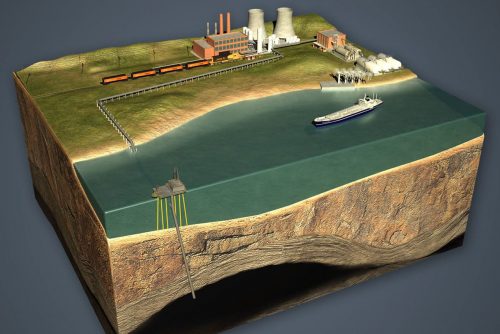The case for a pioneering Merseyside carbon capture operation

Merseyside could press its case to be one of the first carbon capture clusters set up in the UK, as recommended by Chancellor Rishi Sunak in his first Budget.
He cited Merseyside as one of several possible areas for a cluster, which he believes could lead to the creation of around 6,000 jobs in total at different sites.
Carbon Capture, Usage and Storage, or CCUS, can help the UK in its fight against climate change.
It prevents carbon dioxide entering the atmosphere by capturing it, compressing it and transporting it for safe, permanent storage at carefully selected sites, such as depleted oil and gas reservoirs.
As the technology matures, options for the re-use of the CO2 will be available.
CCUS can capture up to 90% of the CO2 emissions produced from industrial processes which use natural gas, such as fertiliser production.
CCS will protect industrial jobs in the North West by helping the largest CO2 emitters in the region reduce their carbon emissions.
The Committee on Climate Change has recommended that the first CCUS cluster in the UK is operational by 2026, with large scale storage available by 2035.
HyNet North West is a hydrogen energy and CCUS project, and part of the North West Hydrogen Alliance.
It says the North West has a cluster of energy-intensive industrial gas users around the Ellesmere Port area, including energy and pharmaceutical operations.
Establishing CCUS in industrial areas such as this maximises potential cost savings and supports the use of the technology across different sectors, eg, heat and power.
HyNet North West has set out a low cost, practical and timely option for the UK’s first CCUS deployment through the re-use of the Liverpool Bay oil and gas fields and related infrastructure.
Deliverable by 2026, it meets the Government’s ambition for CCUS deployment.
HyNet says the Liverpool Bay site, owned by ENI, has an estimated CO2 storage capacity of 130 million tonnes.
Gas extraction is likely to cease within the required project timeframe and re-using the site for CCUS would avoid, or postpone, substantial decommissioning costs, payable by government and industry.
A 2016 study by the Energy Technologies Institute cited Hamilton Field at Liverpool Bay as the lowest cost scale UK CCS option, on the basis of the overall project life cycle cost.
There are other nearby opportunities for extension at Morecambe Bay, and the infrastructure could be used by other industry, power generators and in the production of low carbon transport fuels.








